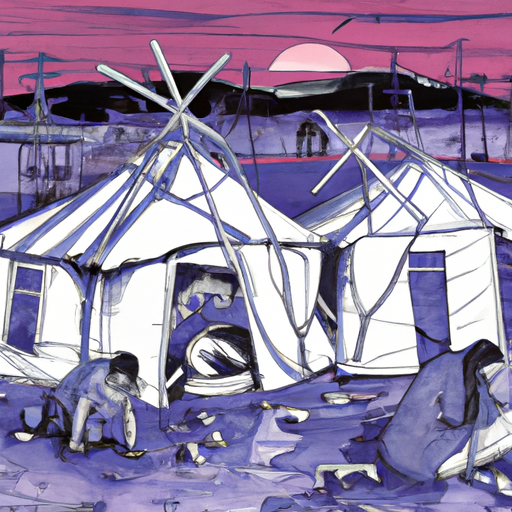Piikani Nation Declares State of Emergency over Opioid Crisis in Canada
Welcome to another blog post where we continue to research, reflect, and comment on the ongoing opioid crisis in Canada. Today, we draw attention to a recent article posted on Yahoo News Canada focusing on the Piikani Nation in Alberta, which is suffering devastating consequences as a result of this nationwide issue.
About the Opioid Crisis in the Piikani Nation
Located in the southern part of Alberta, the Piikani Nation has recently declared a state of emergency as the opioid crisis continues to ravage this tight-knit community. Unfortunately, this crisis is not only affecting the Piikani Nation, it is a well-documented problem across the country. However, Indigenous communities are disproportionately affected due to several reasons, including systemic racism, generational trauma, lack of access to medical care, and social determinants of health, among other factors.
The increasing number of deaths is a stark reminder of the opioid crisis’ severe consequences. But the situation affects the community’s daily life on many levels beyond mortality. From homelessness and rising crime rates to the breaking apart of families and the strain on the healthcare system, this community is crying out for immediate help.
Resolution Strategies
The Piikani Nation is not sitting idle in the face of this crisis. The community has various initiatives in place to help curb the opioid crisis. For instance, the opioid class action lawsuit against 40 opioid manufacturers and wholesalers aims to provide financial compensation for the damage inflicted by the crisis. Additionally, the community has ramped up efforts to increase access to the drug naloxone, which can reverse the effects of an opioid overdose if administered in time.
Recognizing the correlation between homelessness and drug addiction, Piikani Nation Chief and Council have also announced a new project to provide stable housing for those affected by the crisis. However, combating the opioid crisis will require concerted efforts from all levels of government and society.
Key Points:
- The Piikani Nation in Alberta, an Indigenous community, declared a state of emergency as a result of the opioid crisis.
- Indigenous communities are disproportionately affected by the opioid epidemic due to various systemic issues.
- Beyond death, the effects of the opioid crisis include an increase in crime rates, homelessness, family disintegration, and stress on the healthcare system.
- Piikani Nation is participating in an opioid class action lawsuit and enhancing naloxone availability to combat this crisis head-on.
- Piikani leaders acknowledge the link between homelessness and addiction, taking steps to provide stable housing for those in the crisis’s grip.
Conclusion
Despite the tragic toll the opioid crisis has taken on communities like the Piikani Nation, there remains a glimmer of hope. The initiatives born amidst this crisis demonstrate resilience, determination, and the strength that communities can muster when faced with hardships. However, while these are significant steps towards mitigating the damage of the opioid crisis, a comprehensive and integrated approach that addresses all aspects of this complex problem is needed across local, provincial, and national levels.
Each of us can play a role by raising awareness about the opioid crisis, advocating for policy changes, and providing support to those affected. Let’s use the story of Piikani Nation as a rallying call to action and a reminder of the urgency of addressing the opioid crisis.
For readers interested in understanding more about the opioid crisis within Indigenous communities, refer to our previous posts which delve into this area. Join us next time as we continue to explore and comment on issues related to opioids and the ongoing crisis in Canada.


